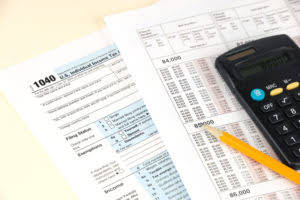
But the profession will always have a place in the offices of small and medium businesses. They may or may not supervise clerks or assistants, depending on the size of the business. Gain a strategic vantage point in your career journey with Vocation Vantage, your compass for navigating the world of work. This is an excellent resource for becoming certified as a full charge bookkeeper. They offer many different courses that will help you achieve this designation.
- They have a deep understanding of accounting principles and can maintain meticulous records of your business transactions.
- One significant trend is the automation of repetitive tasks such as data entry and reconciliation.
- So let’s see what the basic duties of a full charge bookkeeper are, so you can have a better idea if that is what your business needs are.
- A full charge bookkeeper is responsible for all aspects of the books for a business.
- Full charge bookkeeper responsibilities include going much deeper into the general ledger than a regular bookkeeper.
Proper time management allows you to allocate the right amount of time to each task, ensuring that you can deliver accurate and timely financial information to the business. In this role, you will be handling a significant amount of financial data and transactions on a daily basis. It is essential to have a keen eye for detail to ensure that every entry is accurate and properly recorded.
Save time and money on a customized accounting plan
Running a business involves juggling various responsibilities, and bookkeeping can be time-consuming and complex. By hiring a full charge bookkeeper, you can free up valuable time and resources to focus on your core business functions. Instead of spending hours on bookkeeping tasks, you can dedicate your energy to growing your business, serving your customers, and developing new strategies. Handling accounts payable includes tasks such as verifying invoices, obtaining necessary approvals for payment, and scheduling payments to meet deadlines.

In this role, you may help prepare financial statements and tax returns for your employer, who then submits them to a CPA for review or auditing. Reconciling bank statements is another important duty of a full charge bookkeeper. This process involves comparing the company’s recorded transactions with the bank’s records to ensure accuracy and identify any discrepancies. By regularly reconciling bank statements, you can detect errors, prevent fraudulent activity, and maintain the integrity of the financial records. Full charge bookkeeping encompasses all of the bookkeeping needs of a business.
B. Decision-making and Reporting:
While regular bookkeepers record financial transactions, create reports, process payroll, and manage customer payments and invoices, a full charge bookkeeper’s tasks extend beyond this. They take on the additional role of accountant and usually have broader managerial responsibilities. Nearly all bookkeepers working with this level of responsibility also need to have management training.
An in-house bookkeeper may not be involved in higher-degree financial evaluation or decision-making. Full charge bookkeepers are responsible for full-cycle accounting, which requires an ability to juggle several organizational tasks at once. Their responsibilities include managing all aspects of general ledger, accounts receivable, and accounts payable, as well as handling payroll information, credit card statements, and cash flow. Moreover, full charge bookkeepers can provide valuable financial insights that can help small businesses identify areas for improvement and implement growth strategies. By analyzing financial data and generating comprehensive reports, these professionals help business owners gain a deeper understanding of their financial position, cash flow, and profitability.
Educational and Training Requirements for Full-Charge Bookkeepers
Businesses with fewer than 10 employees may only need part-time services from a bookkeeper. They can have unexpected requests for financial reports or last-minute changes that can cause a lot of stress. Unrealistic expectations and working with owners who may not understand financial projections are other commonly-heard job negatives. Discover the of a full charge bookkeeper, their responsibilities, required skills, and why hiring one is crucial for business success. Due to Changing Nature of Tax Law and Legal field, we do not make any warranties as to accuracy or completeness of this information.

In conclusion, the trends of automation and technology, outsourcing bookkeeping services, and the increasing demand in small businesses are shaping the industry of full charge bookkeeping. By embracing automation and leveraging technology, full charge bookkeepers can enhance their efficiency and accuracy. Outsourcing bookkeeping services offers businesses the opportunity to focus on their core functions while benefiting from specialized expertise. The rising demand for full charge bookkeepers in small businesses underscores the of maintaining accurate financial records and gaining valuable financial insights. As the industry continues to evolve, full charge bookkeepers must stay abreast of these trends to remain competitive and provide exceptional services to their clients. In summary, a full charge bookkeeper and a regular bookkeeper differ in terms of their scope of work, level of autonomy, and salary.
